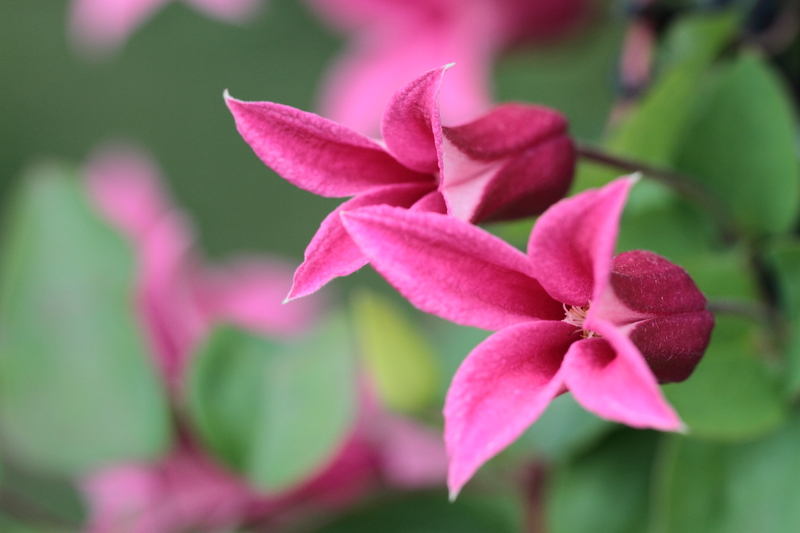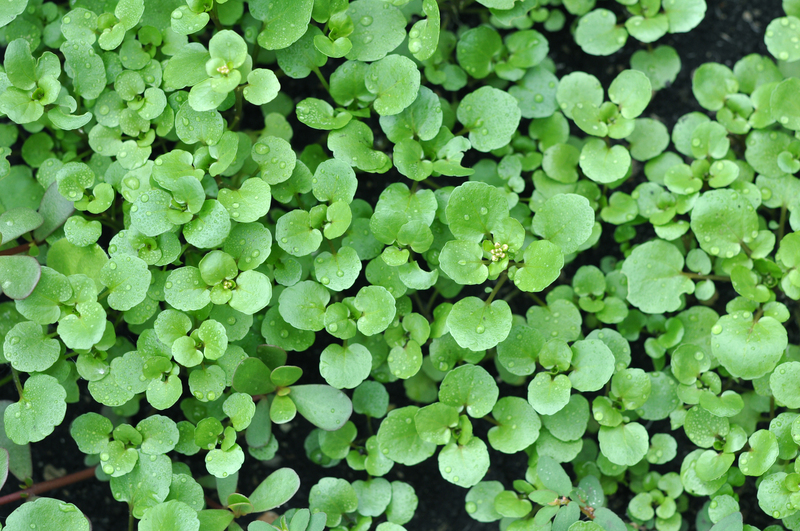Nurture Your Green Space Wisely: 9 Tips for Aspiring Gardeners
Posted on 23/06/2025
Nurture Your Green Space Wisely: 9 Tips for Aspiring Gardeners
If you've ever dreamed of escaping the concrete jungle and cultivating your own natural oasis, you're in the right place. Nurturing your green space wisely is more than just planting a few seeds--it's about understanding your environment and making informed decisions. Whether you have a sprawling backyard or a cozy balcony, becoming a skilled gardener is an exciting, rewarding journey.
Ready to unlock the secrets to a thriving garden? In this article, we'll cover 9 essential tips for aspiring gardeners. From soil preparation to sustainable practices, you'll learn how to care for your green area like a pro. These time-tested strategies will help you foster not just healthy plants, but a peaceful sanctuary you'll love spending time in.
1. Assess Your Space and Plan Wisely
Before you dig in, take a step back and get familiar with the quirks of your own green space. Observing your plot--however large or small--will set the foundation for your gardening success.
- Sunlight: Track how sunlight moves through your area. Note places that receive direct, partial, or dappled light throughout the day.
- Soil Type: Is your earth sandy, loamy, or full of clay? Squeeze a handful of moist soil. Sandy soil crumbles, clay sticks, and loam feels silky. Different plants prefer different soils.
- Space Constraints: How much room do you really have? Plot your planting beds, pots, or raised beds accordingly.
- Water Access: Consider the proximity to your water source for easy maintenance.
*The more you know about your environment, the more tailored your garden design will be.*
Why Planning is Crucial
Successful gardeners nurture their greenery wisely by mapping out their garden layout before planting begins. This careful approach saves time, prevents overcrowding, and allows each plant to thrive in the best possible spot.

2. Choose the Right Plants for Your Region
One of the best ways to nurture your garden wisely is by selecting plants well-suited to your climate and local conditions. Research your USDA Hardiness Zone or the equivalent for your region. Ask yourself:
- Which plants flourish locally?
- What are their seasonal needs?
- Are they drought-tolerant or do they require frequent watering?
- Do they attract beneficial pollinators to your area?
Native plants often require less maintenance and water, making them an eco-friendly and wise choice for aspiring gardeners. Local nurseries and garden clubs are great resources for discovering what thrives in your specific area.
Tip:
Connect with fellow gardening enthusiasts online or in your community for real-life insights on what grows best in your locale.
3. Enhance Soil Health Naturally
A garden's success lies beneath the surface. Healthy soil is the backbone of a flourishing green space. Without proper soil care, plants may struggle--even with abundant water and sunlight.
How to Improve Soil Quality
- Add Organic Matter: Use compost, well-rotted manure, or leaf mold to increase soil fertility and moisture retention.
- Mulch Generously: A thick layer of mulch helps retain moisture, suppresses weeds, and adds nutrients as it breaks down.
- Rotate Crops: Avoid planting the same types of plants in the same spot year after year. Rotation prevents nutrient depletion and certain pests and diseases.
- Test the pH: Many garden centers offer pH test kits. Most plants prefer a neutral to slightly acidic soil.
*Strong soil equals strong plants. Cultivating the soil is one of the most effective ways to nurture your green space wisely.*
4. Water--But Not Too Much!
Watering is both art and science. While plants can't survive without it, overwatering can be as harmful as underwatering.
- Water Deeply: Shallow watering encourages shallow roots. Instead, soak the ground to let water penetrate deeply, promoting strong, healthy root systems.
- Early or Late: Water your garden early in the morning or late in the afternoon to minimize evaporation.
- Use Drip Irrigation: For larger gardens, a drip system targets roots directly and reduces water loss.
- Mulch: As highlighted earlier, mulch helps keep soil moisture levels consistent.
Remember, each species has its own water needs. Always check the soil before watering--if it feels damp two inches down, you can wait a bit longer.
5. Combat Weeds and Pests the Natural Way
An essential aspect of caring for your green area wisely is integrated pest management (IPM)--a balanced, eco-conscious approach to controlling garden threats.
Natural Weed and Pest Control Techniques
- Hand-Weeding: Regularly remove weeds by hand before they go to seed.
- Mulching: As previously mentioned, mulch creates a barrier that inhibits weed growth.
- Encourage Beneficial Insects: Ladybugs, lacewings, and predatory wasps naturally control pest populations.
- Choose Resistant Varieties: Select plant varieties bred for pest and disease resistance.
- Organic Sprays: Use neem oil, insecticidal soap, or homemade solutions as a last resort.
Ignoring garden problems only makes them worse. Vigilance and early intervention keep your green space healthy without harsh chemicals.
6. Prune and Deadhead for Vigorous Growth
Wise gardeners know that sometimes, less is more. Pruning and deadheading are crucial for both plant health and aesthetics.
- Pruning: Cut away dead or diseased branches to improve air circulation and plant structure.
- Deadheading: Remove spent flowers to encourage new blooms and extend the flowering period.
- Tool Care: Always use clean, sharp tools to prevent the spread of disease.
Regular maintenance not only keeps your garden tidy but also stimulates growth and keeps pests at bay.
7. Practice Sustainable and Eco-Friendly Gardening
Sustainability is at the heart of truly wise gardening. The choices you make will leave a lasting impact on your environment.
Ways to Make Your Green Space Care Eco-Conscious:
- Compost Kitchen Waste: Convert kitchen scraps and yard waste into nutrient-rich compost instead of sending them to the landfill.
- Reduce Chemical Use: Opt for natural pest controls and fertilizers.
- Harvest Rainwater: Collect roof runoff in barrels for garden use.
- Support Pollinators: Plant a diverse mix of flowers and avoid pesticides that harm bees and butterflies.
- Limit Lawn Space: Replace thirsty lawns with native shrubs or wildflower meadows.
Gardening sustainably is not only better for the planet--it often results in healthier, more resilient plants, too.
8. Keep Learning and Experimenting
No gardener--novice or seasoned--is ever truly finished learning. Nature always has new lessons to share.
Grow Your Knowledge
- Read Books and Articles: Festoon yourself with the collective wisdom of gardening experts.
- Attend Workshops: Local botanical gardens or horticultural societies often offer classes.
- Document Your Progress: Keep a gardening journal. Track what works, what doesn't, and what inspires you.
- Celebrate Successes--and Setbacks: Mistakes help you grow as a gardener!
Incorporate what you learn each season. Don't be afraid to try new plant varieties or techniques. The more you experiment, the more empowered you'll feel to nurture your garden wisely.

9. Cultivate Patience and Enjoy the Journey
*Gardening is a marathon, not a sprint.* Plants grow at their own pace, and your green space will evolve over time. Enjoy every stage--and don't rush the process.
- Technology Detox: Use your gardening time to unwind, disconnect, and reconnect with nature.
- Mindfulness: Notice textures, scents, and colors. Let gardening be a meditative, calming ritual.
- Cherish Small Wins: Each sprout, bloom, and harvest is a victory worth savoring.
Patience is the most underrated gardening skill. Over time, your efforts will be rewarded with lush greenery, vibrant flowers, and a sense of fulfillment.
Conclusion
To nurture your green space wisely is to care for both your plants and yourself. Smart planning, mindful practices, and a willingness to keep learning will transform your patch of earth into an abundant, sustainable retreat. These 9 gardening tips will guide you as you straighten your gardening gloves and prepare to dig in--literally and figuratively.
Whether you're just starting or determined to elevate your existing garden, remember: The true beauty of a green space comes from the heart of its caretaker. May your journey be lush, fruitful, and deeply satisfying!
Frequently Asked Questions (FAQs)
-
What are the basic tools every new gardener needs?
Start with a sturdy trowel, pruning shears, gloves, watering can or hose, and a shovel. As you grow more experienced, you can expand your toolkit. -
How often should I water my garden?
Most gardens need about 1 inch of water per week, but this varies by plant type, soil, and local climate. Always check soil moisture before watering. -
What are the easiest plants for beginners?
Herbs (like basil and mint), salad greens, sunflowers, marigolds, and zinnias are great for beginners and offer quick rewards. -
How do I attract pollinators naturally?
Plant a variety of brightly-colored, nectar-rich flowers and avoid pesticide use whenever possible.
For more inspiration and actionable guidance, bookmark this guide and keep nurturing your green space, step by step. Happy Gardening!
Latest Posts
Evergreen Climbers: A Canvas of Green in Shady Nooks
Design Your Dream Zen Garden for Ultimate Outdoor Peace
Increase Privacy Elegantly with These 9 Quick-Growing Hedges

